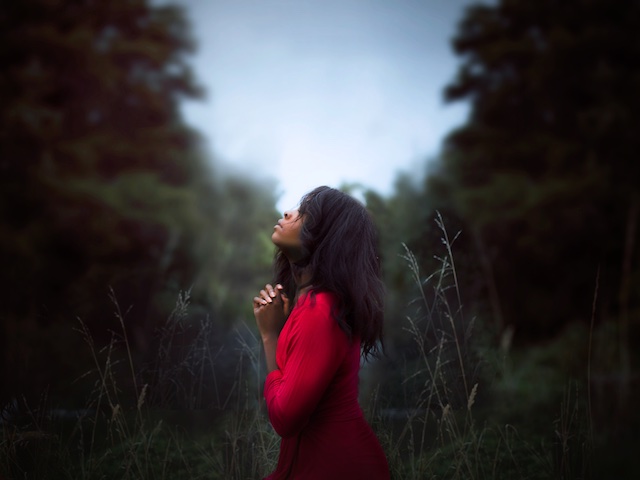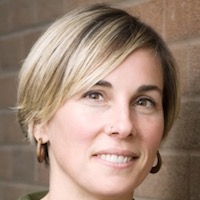
I once saw an exhibition on an 11th century manuscript known as The Book of Curiosities, which contained strange maps of what was thought to be the known world.
The seas in these maps contained wondrous beasts, and unidentifiable foreign lands held trees that grew humanoid fruit. It was such an imaginative contrast to the maps of our known world that it left a big impression on me.
I often think about that map because, while we seem to have accurately mapped our physical world, life itself still feels like a journey into the Great Unknown.
In fact, our inner lives, filled with emotional beasts and erratic mental states, might not look so different than those pictures in The Book of Curiosities. And facing this Great Unknown, it feels only natural that many of us long for a map that will guide us—a map that might take us, for instance, from our sense of being lost and unsatisfied to a place of fulfillment and peace of mind.
What would a spiritual map look like? What use would it be?
We only need to look around ourselves at the swamplands of our modern life to see our need for some kind of guidance. Too often it feels like we are running at breakneck speed without knowing where we’re headed. We attach the meaning of our life to things like careers and salaries and houses and possessions that continually let us down.
And no matter how firmly we hold to our convictions about what is most important in life, these ideas often remain at odds with the way we spend our time and energy. It feels as if, despite our best intentions, we are continually battered by the winds of the world, bullied into betraying ourselves.
A spiritual map would see us safely through these swamplands. That is my hope.
A spiritual map would help us not only name what was most important to us but would explain how to follow those paths with our actual footsteps.
A spiritual map would point the way when life events muddy the path we thought we were following. And it would give us faith in where we are going.
We face the Great Unknown in our daily lives, as well as on our spiritual journey to discover who we really are, how we should live, and where we are going. We have so many questions:
What is my purpose in life?
Why am I here?
What is my relationship to the vast, mysterious universe?
What happens after I die?
How can I find happiness?
How can I live without so much stress?
What am I working for?
These questions are the real Unknown—the wilds and backwaters of our inner lives. And having a spiritual map that would guide us through these swamps is what we truly long for.
We are all, ultimately, cut from the same human cloth, and so much of what might define a spiritual map for each of us will be the same. However, we are all also very different. We are born with different tendencies, different preferences, and different ways of understanding the world. We come through life with different experiences at different times. So it only makes sense that we each need a spiritual map that also speaks to this individuality. A spiritual map written in our own words that is both created by and responds to our personal, big life questions.
While they might seem to open up a void that can seem frighteningly vast and unknowable, asking these big questions is the most important way to create our own personal spiritual map.
These questions create the dirt paths and rickety bridges, the crossroads and signposts and landmarks of our personal spiritual map. These big questions arise out of life itself, and they show us the next lesson we need to learn in order to grow in wisdom.
The experience of feeling stuck in a terrible job or relationship might elicit, “How did I get here? Why am I doing this work?”
Getting laid off might raise the questions, “How do I deal with uncertainty? What is my purpose in life?”
Losing a loved one, or becoming sick ourselves, might cause us to ask, “How can I live when I know nothing and no one lasts forever?”
These questions arise in slightly different ways and at different times for everyone. They whisper in the quietest voice of our mind, calling to us to leave the superficial issues and the habitual race of our daily lives and come back to the deeper meaning of why we are here in the first place.
Lama Surya Das writes in his book, The Big Questions, “Even now, life is asking you, me, and everyone a Big Question. In whatever particular form it appears to you personally, it is up to you to look deeply within yourself to hear and articulate it.”
It is so important to listen to our own deep questions because they mean so much more when they arise naturally in us, called forth from the foundations of our own life experience.
If they are given to us by someone else (whether a spiritual tradition, a philosophy class, or our parents) they become intellectual exercises, something for our mind to gnaw at, turn over, and get stuck in.
However, when these big questions arise through our own experience, they are alive. They come with an energy that has the potential to pull us into a deeper understanding and to transform the way we perceive the world around us.
This is our map. The questions themselves give us direction by showing us the way to our own personal and spiritual growth.
Once asked, these deeper life questions compel us to act, to move, to search for an understanding, to respond to the void of the question. If we allow them to come into our lives with their full power, these questions will help us create our own spiritual map.
If we look behind us, into our past, we can probably chart our own journey through our questions. For me, I was about 13 years old when I really understood that one day I too was going to die. This question—How can I find peace and fulfillment in my life knowing that it is going to end?—has propelled me forward in my own journey to search for deeper meaning.
My life has raised many questions along the way. In my teenage years it was, “Who am I? How can I navigate my desire to ‘fit in’ and also ‘be unique’?”
During my years at university, I realised not only how much I had learned, but how much I had forgotten, leading me to ask, “What is the difference between knowledge and wisdom?”
Being a parent has forced me to ask, “How do I surrender to ‘what is’ rather than resist things that are not how I expected them to be?”
So many questions—each day life lays new ones at my feet.
If we look behind us at the steps we have trodden and the winding paths we have taken so far, we will see the map of our own individual spiritual journey. Even now, there is a Great Question calling to each of us.
Answering that call and harnessing the power of that question will require courage to step out into the Great Unknown. It will require an active search for a greater understanding than the one we presently hold. Yet, as Albert Einstein reminds us, it is the question that holds the key to finding what we seek.
He wrote, “If I had an hour to solve a problem, and my life depended on the solution, I would spend the first 55 minutes determining the proper question to ask, for once I know the proper question, I could solve the problem in less than five minutes.”
~
~
Author: Sarah Beth Hunt
Image: Diana Simumpande/Unsplash
Editor: Nicole Cameron
Copy Editor: Taia Butler
Social Editor: Khara-Jade Warren







Read 2 comments and reply